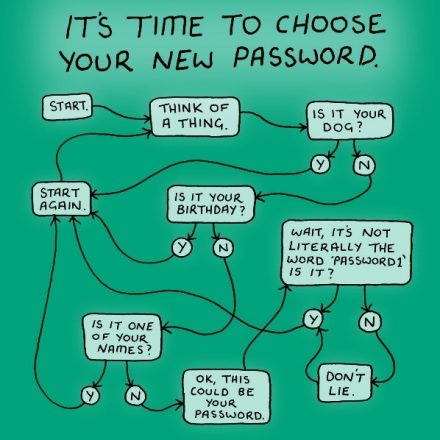
Roughly 1 in 7 U.S. residents 16 or older have been victims of identity theft in 2014, according to the U.S. Department of Justice. To protect yourself from identity theft you must understand what it actually is, so you can take action to prevent it. Unfortunately, many Americans don’t take the necessary steps to guard against identity theft.
What Is Identity Theft?
Identity theft or identity fraud is any crime against someone where personal and financial data is illegally obtained by fraud or deception, usually for financial gain.
Using your personal information, thieves can:
- Apply for credit cards or loans in your name.
- Withdraw money from your bank account.
- Use your health insurance for medical care.
- Use your Social Security number to steal your tax refund.
- Sell your information on the dark web to other criminals.
How to Recognize Signs of Identity Theft
1. You stop getting your bills in the mail
If you normally get bills in the mail and this changes, this could mean your personal info has been compromised, and the identity thief has changed your billing address.
2. You’re turned down for a loan or credit
If you have a good credit history and are rejected for credit, you might have been targeted by an identity thief. Higher interest rates on a new loan also can be a sign that your information may have been stolen.
3. Test charges appear on your credit card statement
Many identity thieves will “test” that a stolen card is still active by making small purchases of under $5.00. If the card is approved, they know that they will be able to make larger transactions.
4. You’re billed for purchases you didn’t make
This is one of the most obvious signs of fraud. If you didn’t make a purchase, then someone else did.
5. You notice unauthorized transactions on your financial accounts
Similar to the previous sign, if your bank, credit card or other financial accounts show unauthorized transactions, those accounts most likely have been breached.
6. Your tax return is rejected
If you filed your tax returns and received a rejection notice from the Internal Revenue Service, this might mean that a return has already been fraudulently filed in your name.
Steps to Protect Yourself from Identity Theft

1. Use elaborate passwords
Having a password is mandatory for keeping your information safe. Not having a one on your computer, phone, and all financial accounts is the personal information equivalent of leaving your home with the door wide open. Always use passwords, and the stronger the password, the better. Random combinations of letters, numbers and special characters, work best. Your mother’s maiden name or your pet’s name aren’t hard to find.
2. Vary your passwords
If you use the same password for all of your devices and financial accounts, you are making a thief’s job easier. In this scenario, once they obtain a single password, they have access to the rest of your accounts. To stop this from happening, mix up passwords and don’t include and personal information in them. If you suspect that any account has been compromised change your password.
3. Stay away from shady websites and links
Avoid clicking on any suspicious-looking links in emails or texts. Identity thieves commonly use emails and websites that look similar to your bank, credit card company, or other financial services. If you’re unsure about a link, don’t click on it, and never type in your login information on an unfamiliar login screen.
4. Don’t give out personal information
Scammers also regularly pose as a bank or credit card company employee over the phone, but remember, no valid organization will call and ask you for personal information, especially a bank or credit card PIN number or Social Security number. Keep in mind that the I.R.S. will never call you on the phone. It always sends requests and information via U.S. mail.
5. Regularly check your credit reports
Credit reports will include any suspicious activity on your financial accounts. If you watch your credit scores, be alert for any large, unexplained change.
6. Protect documents with personal information

Identity thieves can fish receipts and statements out of the trash to piece together your personal information. Destroy any physical private records and statements that include any personal and/or financial data (a decent shredder is about $20 to $30). Shred junk mail, too, especially pre-approved credit offers.
7. Limit your risk
Limit the number of credit cards you keep in your wallet. If it’s stolen, you can minimize the impact. Additionally, don’t carry your Social Security card with you. Your Social Security number is a master key to your personal data. Keep it secure. When asked for your number, ask why it is needed and how it will be protected.
Never take the security of your personal data for granted. No matter how careful you are, you could become a victim. Having your data compromised does not necessarily mean that your identity will be stolen, but it is a reason to be extra cautious.
The sooner you detect a problem, the sooner you can solve it.
Here at Lantz Family Insurance Agency we are committed to providing our clients with quality insurance and superior customer service – including when disaster strikes. Should the need arise to file a claim, we’re ready to assist you in any way we can. Call us for a FREE, No Obligation Quote at 774-992-0789 or email info@lantzfia.com.

Peter C. Lantz, Owner/Agent
Peter C. Lantz (Pete) has been a Licensed Insurance Agent in Massachusetts for more than 10 years. He has worked for Arbor Insurance Brokerage, Inc. and USA Wealth Group, Inc. as an Insurance Broker and Financial Advisor. Pete has served in the United States Marine Corps Reserve. Pete has his Real Estate Brokers’ License, as well as Life and Health Insurance Licenses.
